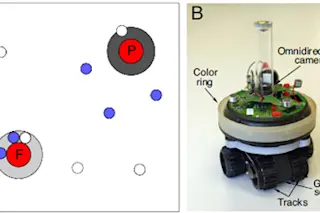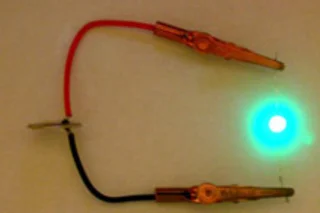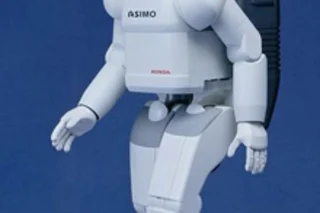With names like Incher, Jitter and Wings, you know these aren't your run-of-the-mill robots. Through computer-simulated evolution these flexible robots have developed unique gaits. The result is a new source of ideas for how robots could move---and a bizarre but irresistible visual. Researchers at Cornell University and the University of Wyoming wanted to see evolution in action, so they designed a soft robot simulator. They provided the computer program with four materials and one rule. The materials resembled the basic components of our own bodies: bone, soft tissue and a couple kinds of muscle. The only rule governing the system was that faster creatures would reproduce more. Essentially, the researchers incentivized forward motion, so the faster the robot, the more successful it would be in the evolutionary race. Then they sat back and let natural selection do the rest. Over the course of 1,000 generations, this simple set of components ...
Watch This: Squishy Robots Evolve for Speed
Discover how a soft robot simulator evolved squishy robots with unique gaits beyond human engineering limits.
More on Discover
Stay Curious
SubscribeTo The Magazine
Save up to 40% off the cover price when you subscribe to Discover magazine.
Subscribe



